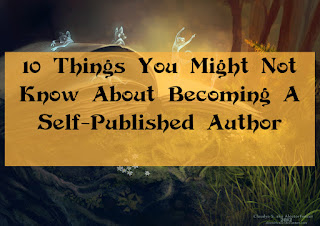Jean Kerr on Writing
"Confronted by an absolutely infuriating review, it is sometimes helpful for the victim to do a little personal research on the critic. Is there any truth to the rumor that he had no formal education beyond the age of eleven? Was he ever arrested for burglary?" Jean Kerr.
We all have little ways of consoling ourselves when things don't go exactly as planned. Sometimes we convince ourselves that whatever happened is actually better. Other times, we externalize so that the bad result is someone else's (or some other thing's) fault. Sometimes we live on the hope that we'll try again and succeed, or the failure was not as dismal as it first appears. Sometimes, though, we retaliate, shut down, give up, walk away. Very rarely are these good responses.
In Jean Kerr's advice, the seed is planted for retaliation - once we dig up that dirt, it is tempting to throw it, to justify ourselves before everyone and re-validate our work. But that seed does not necessarily need to grow. In Kerr's case, she had the advantage that people enjoyed her books; so the negative or infuriating review was made null by the copies sold.
My hope is to never plant the seed. Granted, I haven't gotten that many negative reviews - at least not from people whose opinion I sought out. My greatest struggle was with people who asked for the book, and didn't end up reading past the first chapter. I wallowed for a long time wondering what was wrong with my book - or at least the first chapter - that it was so un-engrossing.
Fortunately, I had people who flew through the book, and it made me think. It made me take less seriously the 'failures' so that I could look at them more objectively. Here's how I console myself now: it is very likely that the people who asked for my book and didn't finish it, asked for it because the idea that someone they knew wrote an entire book was a really cool idea. But sit them inside a bookstore, and they would never go near the Sci-Fi/Fantasy section.
So here's my advice to anyone out there who's writing: don't give your manuscript to just anyone. Write out a couple-paragraph blurb, just like you would see on the back jacket; if someone asks to read your book, hand them that blurb and ask them to answer honestly whether they would pick up that book in a store - or, more simply, just ask them if they read the kind of writing you do. If it doesn't seem like they're interested, politely pass - or, let them read it, and if they don't get into it, realize it's probably not their kind of book.
Nothing wrong with the person, no need to cut them down or prove they are unworthy of offering an opinion.
And really, we should strive for this attitude with everyone, not just book critics.
We all have little ways of consoling ourselves when things don't go exactly as planned. Sometimes we convince ourselves that whatever happened is actually better. Other times, we externalize so that the bad result is someone else's (or some other thing's) fault. Sometimes we live on the hope that we'll try again and succeed, or the failure was not as dismal as it first appears. Sometimes, though, we retaliate, shut down, give up, walk away. Very rarely are these good responses.
In Jean Kerr's advice, the seed is planted for retaliation - once we dig up that dirt, it is tempting to throw it, to justify ourselves before everyone and re-validate our work. But that seed does not necessarily need to grow. In Kerr's case, she had the advantage that people enjoyed her books; so the negative or infuriating review was made null by the copies sold.
My hope is to never plant the seed. Granted, I haven't gotten that many negative reviews - at least not from people whose opinion I sought out. My greatest struggle was with people who asked for the book, and didn't end up reading past the first chapter. I wallowed for a long time wondering what was wrong with my book - or at least the first chapter - that it was so un-engrossing.
Fortunately, I had people who flew through the book, and it made me think. It made me take less seriously the 'failures' so that I could look at them more objectively. Here's how I console myself now: it is very likely that the people who asked for my book and didn't finish it, asked for it because the idea that someone they knew wrote an entire book was a really cool idea. But sit them inside a bookstore, and they would never go near the Sci-Fi/Fantasy section.
So here's my advice to anyone out there who's writing: don't give your manuscript to just anyone. Write out a couple-paragraph blurb, just like you would see on the back jacket; if someone asks to read your book, hand them that blurb and ask them to answer honestly whether they would pick up that book in a store - or, more simply, just ask them if they read the kind of writing you do. If it doesn't seem like they're interested, politely pass - or, let them read it, and if they don't get into it, realize it's probably not their kind of book.
Nothing wrong with the person, no need to cut them down or prove they are unworthy of offering an opinion.
And really, we should strive for this attitude with everyone, not just book critics.


Comments
Post a Comment